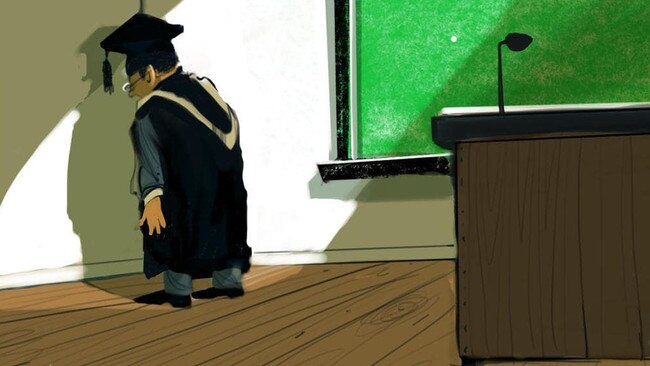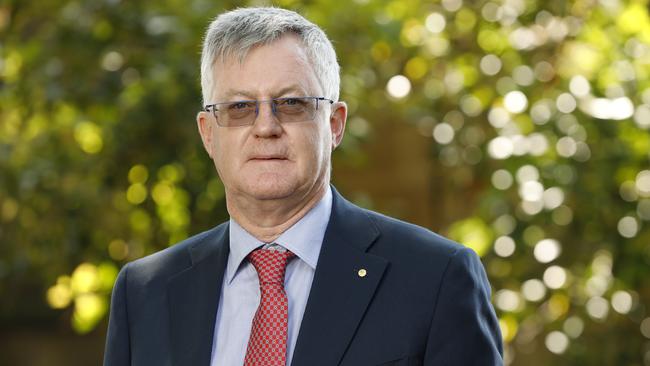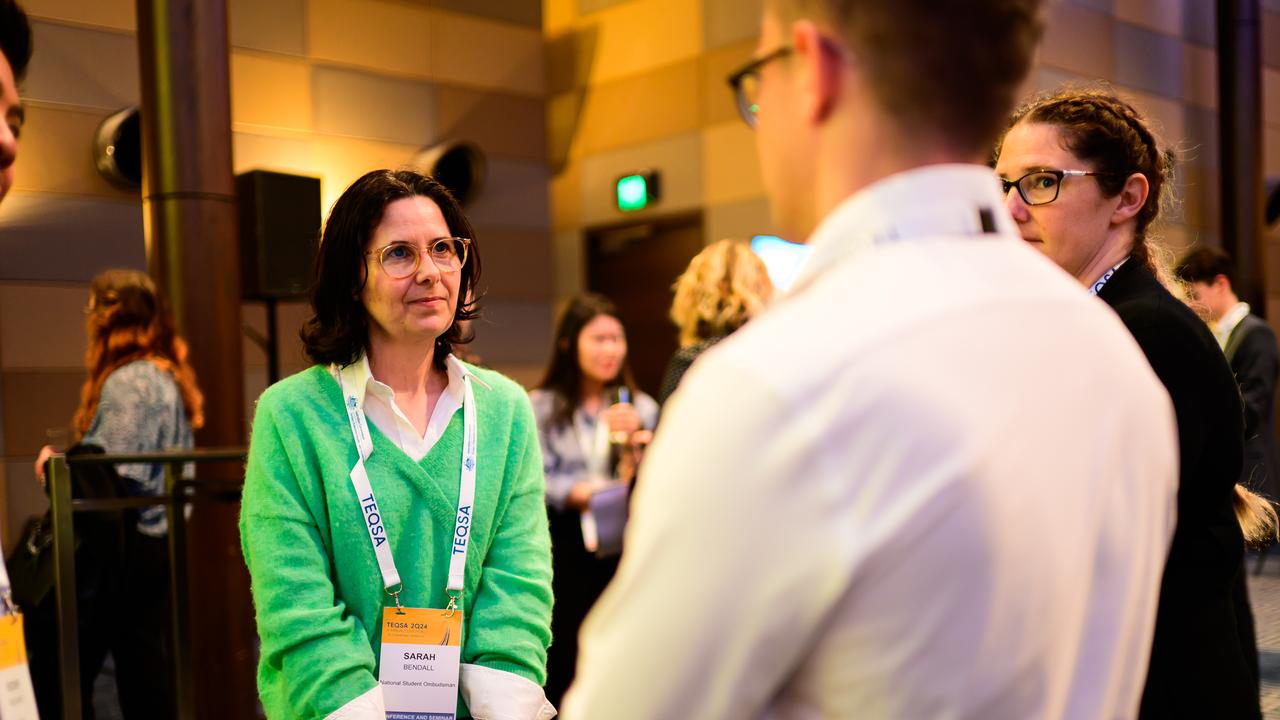Debate is dying as ‘shouters’ dominate, says Parkinson
Risk to free speech infecting campuses is a symptom of a broader societal schism.

Australia’s former top bureaucrat, Martin Parkinson, has warned that the risk to free speech infecting university campuses is a symptom of a broader societal schism threatening the country’s knowledge base and shutting down rational debate.
The former secretary of the Department of Prime Minister and Cabinet will today be announced as the chancellor of Macquarie University in Sydney, replacing former NSW treasurer Michael Egan, who has stepped down after 11 years.
In an exclusive interview with The Australian, Dr Parkinson — a strong advocate of free speech — said the stifling of legitimate debate on issues such as climate change posed a “big risk” for the broader community.
“I think universities are symptomatic of a problem we have in the broader community where we are losing the capacity of civilised discourse and debate … It’s becoming too shouty,” he said.
“Some people are not coming at issues prepared to concede that another person might have a view worth listening to because they believe they are fundamentally wrong. I want to see universities continue to be places where ideas and viewpoints are expressed, debated and exposed.
“You get into a bad place very quickly if you pre-emptively rule out certain perspectives.
“It gets overheated … in universities. But we can’t be critical of universities if we can’t call it out in society more generally.
“If you look at the deterioration in the nature of political discourse, then look at what’s going on in the broader community and then the universities …. unis are not the root cause.”

READ MORE: ‘No excuse’ for unis’ inaction on free speech | Janet Albrechtsen — our unis have lost their way | Students fear free speech crisis
Dr Parkinson’s appointment follows the retirement of Mr Egan, who praised the appointment and revealed Dr Parkinson had been approached earlier in the year to replace him after being the university’s longest-serving chancellor.
Mr Egan said Macquarie was now one of the top 10 universities in the country and the only one to have its own hospital as well as being a world leader in health sciences. It was also recognised for its success in linking academia with business, which Dr Parkinson said had been one of the “appealing” factors in him taking on the role.
University vice-chancellor S. Bruce Dowton said of Dr Parkinson: “He brings a deep understanding of the role Australia can play in a rapidly changing world and has a strong interest in how Macquarie, along with all universities, has a key responsibility in securing a bright future for the nation.”
A recent government review conducted by former High Court judge Robert French did not conclude there was a systemic threat to free speech but recommended a national code to protect academic expression. It followed claims by Education Minister Dan Tehan that some universities had been complicit in stifling free speech on campus.
Dr Parkinson said universities were not to blame and the issue reflected a change across the community and in politics.
He said the climate change debate was an obvious example “but you see it in all sorts of areas”.
“It’s a big risk for us as a community,” Dr Parkinson said.
“We have seen the extent that political views are fragmented overseas — look at Brexit. They are using megaphones to shout over the top of each other.
“As (a) general point, I am of the view we should not be trying to curtail freedom of speech. There are people on the extremes of the spectrum, often inciting violence. Allowing them a platform is not freedom of speech.”
Dr Parkinson said it was a view he had long championed in the public service, where he had also served as Treasury secretary: “It is how you pursue solutions to policy problems.”
He said he’d placed an emphasis in the public service on collaboration, which resonated with the university: “If we are going to grapple with some of the problems we face as a nation, we need to react to a changing world.
“Universities have a key role in helping us do that.”



